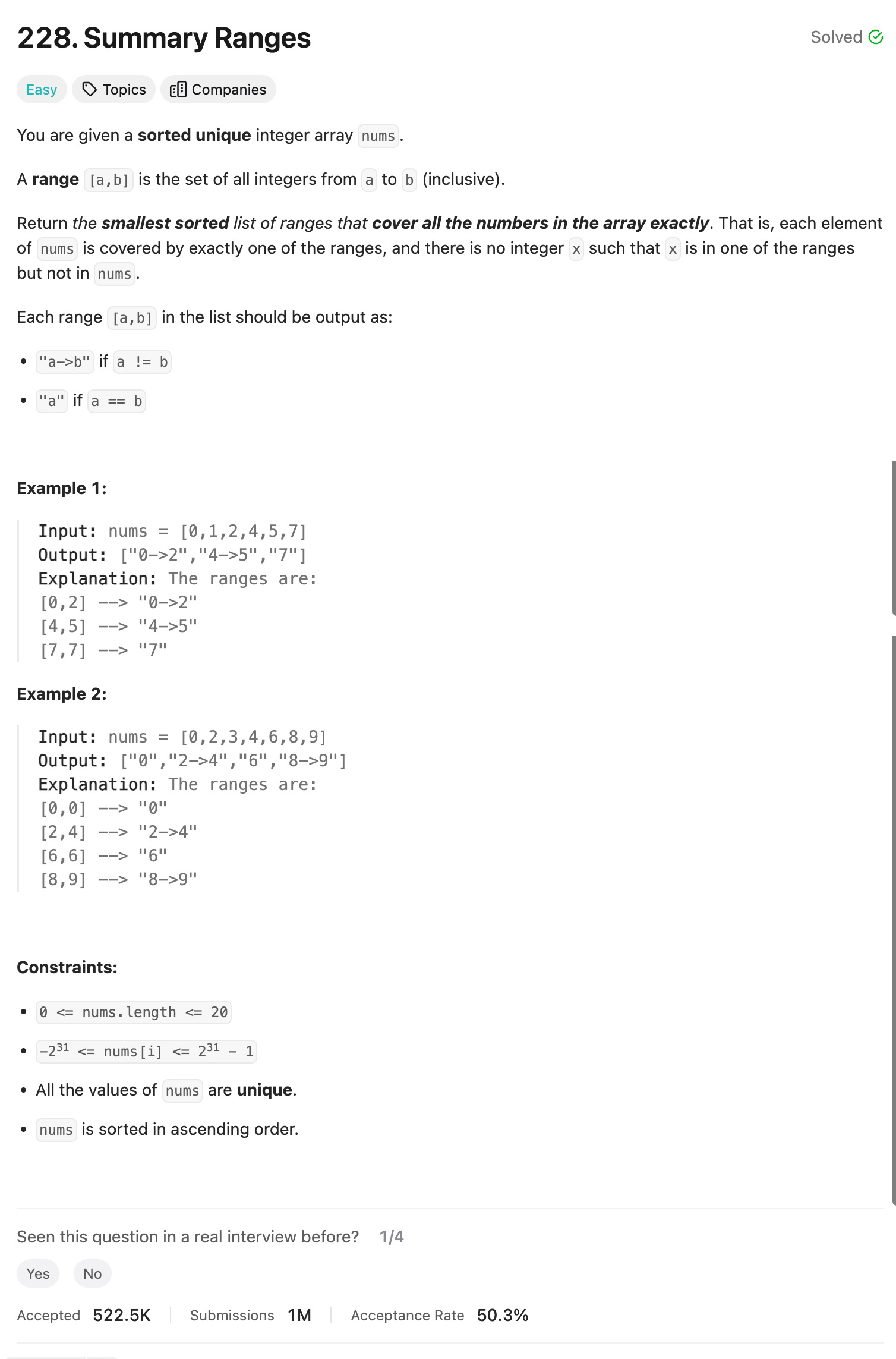Problem of The Day: Happy Number
Problem Statement
Intuition
The idea is likely to iterate through the list and identify consecutive ranges of numbers.
Approach
My approach is to iterate through the list of numbers while keeping track of the start and end of each range. If the current number is not consecutive to the previous one, I’ll add the range to the result list. I’ll handle the case where a range has only one element separately.
Complexity
-
Time complexity: O(n)
-
Space complexity: O(n)
Code
class Solution:
def summaryRanges(self, nums: List[int]) -> List[str]:
if not nums:
return []
res = []
N = len(nums)
start = 0
end = 1
for end in range(1, N):
if nums[end] != nums[end - 1] + 1:
if start != end - 1:
res.append(str(nums[start]) + "->" + str(nums[end - 1]))
else:
res.append(str(nums[start]))
start = end
if start != end and end < len(nums):
res.append(str(nums[start]) + "->" + str(nums[end]))
else:
res.append(str(nums[start]))
return res
Editorial Solution
Approach: Fix Left Bound
class Solution:
def summaryRanges(self, nums: List[int]) -> List[str]:
ranges = []
i = 0
while i < len(nums):
start = nums[i]
while i + 1 < len(nums) and nums[i] + 1 == nums[i + 1]:
i += 1
if start != nums[i]:
ranges.append(str(start) + "->" + str(nums[i]))
else:
ranges.append(str(nums[i]))
i += 1
return ranges
- Time complexity: O(n)
- Space complexity: O(n)
